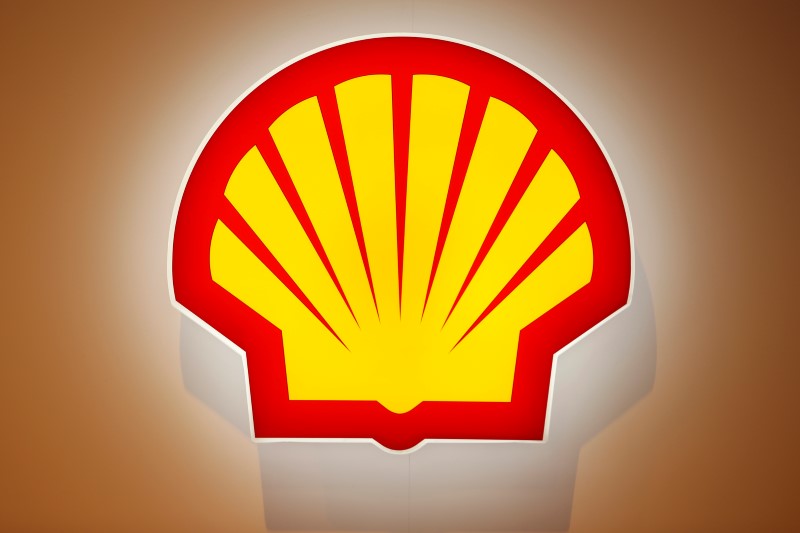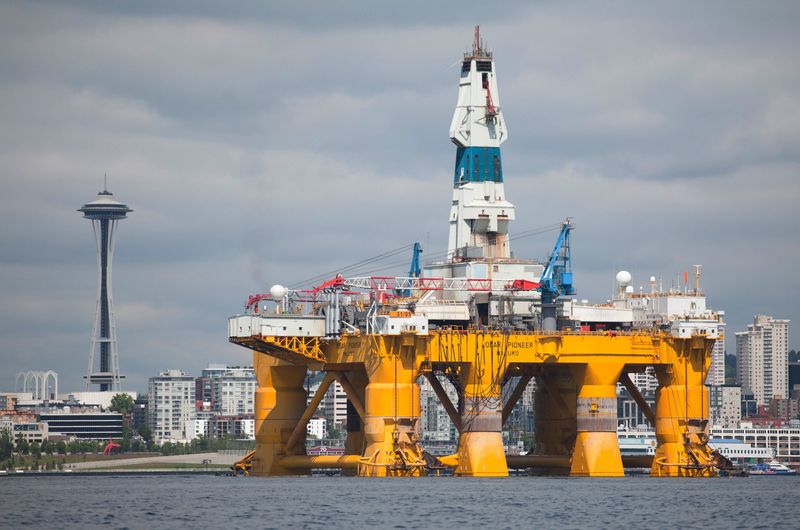By Jeb Blount and Marta Nogueira
RIO DE JANEIRO (Reuters) - Royal Dutch Shell (L:RDSa), Europe's largest oil company, expects to make robust investments in Brazil's offshore resources, hoping to quadruple oil and gas output there by the end of the decade, its chief executive officer said on Monday.
CEO Ben van Beurden spoke in Brazil shortly after Shell's $52 billion (36.01 billion pounds) takeover of BG Group Plc (L:BG), approved in late January, took effect.
Thanks to BG's large portfolio of assets in Brazil and Shell's decision to buy 20 percent of the giant Libra offshore project in 2013, Brazil will be a key area for the Anglo-Dutch company as it focuses on liquefied natural gas and deepwater oil production, van Beurden said.
Shell is rushing in as other companies cut back in the face of Brazil's worst recession in decades, and as a plunge in oil prices and a corruption scandal at state-run Petroleo Brasileiro SA (SA:PETR4) slow local oil and gas growth.
"We believe in the strong fundamentals of Brazil and the fundamentals of its geology," van Beurden told reporters in Rio de Janeiro. "We will be looking at a substantial part of our production from Brazil."
By adding BG's large Brazilian offshore assets, Shell's local output rose six-fold to about 240,000 barrels of oil and natural gas equivalent a day (boepd), or 13 percent of Shell's total of 1.8 million boepd.
A quadrupling of its Brazilian output would boost production to nearly 1 million boepd by 2020. Shell is already Brazil's No. 2 producer after Petroleo Brasileiro, known as Petrobras.
In December, Shell and BG had 7.6 percent of Brazil's total output of just over 3 million barrels a day.
The BG takeover also makes Shell the world's largest trader of liquefied natural gas. While it sells LNG to Petrobras for the Brazilian market, van Beurden and his Brazilian deputy, Andre Araujo, declined to say if they want to buy Petrobras' natural gas assets, some of which are for sale.
Brazil's importance to Shell is expected to increase as the company moves ahead with giant subsalt projects such as Libra, which it is developing with Petrobras, France's Total SA (PA:TOTF), China's CNOOC (HK:0883) and CNPC [CNPET.UL].
Subsalt refers to large hydrocarbon resources trapped deep beneath the seabed by a layer of mineral salts. Libra may hold as much as 12 billion barrels of recoverable oil, according to Brazil's government, and is expected to cost more than $40 billion to develop, with 20 percent of the project and its costs belonging to Shell.
Shell faces serious challenges in Brazil. Oil prices have plunged since the BG deal was announced a year ago. Petrobras, Shell's principal partner in the country, is in serious financial and legal difficulty after the price drop and the massive price-fixing, bribery and kickback scandal.
Even so, van Beurden said subsalt areas should be able to break even at oil prices forecast for this year, without saying what those prices might be.
He said the difficulties facing the country's oil industry might be eased with more flexible rules for Petrobras' statutory role in the development of new subsalt projects. The law requires Petrobras to own and finance 30 percent of any new subsalt project. It also requires that Petrobras manage all new developments as operator.
Petrobras' debt, though, has forced it to cut back, putting the development of new subsalt projects, including those with Shell, in doubt.
"Brazil might benefit from being a bit more flexible on this," van Beurden said, adding that opening up the subsalt area to more companies could attract capital and create jobs.
The Valor Economico newspaper reported on Monday that President Dilma Rousseff may be open to changing the law that gives Petrobras so much control of the subsalt.

The 2010 law was one of her most high-profile legislative victories and a key part of her efforts to boost state control of the oil industry.
